Orange Knowledge Impact Series - Liveblog #2
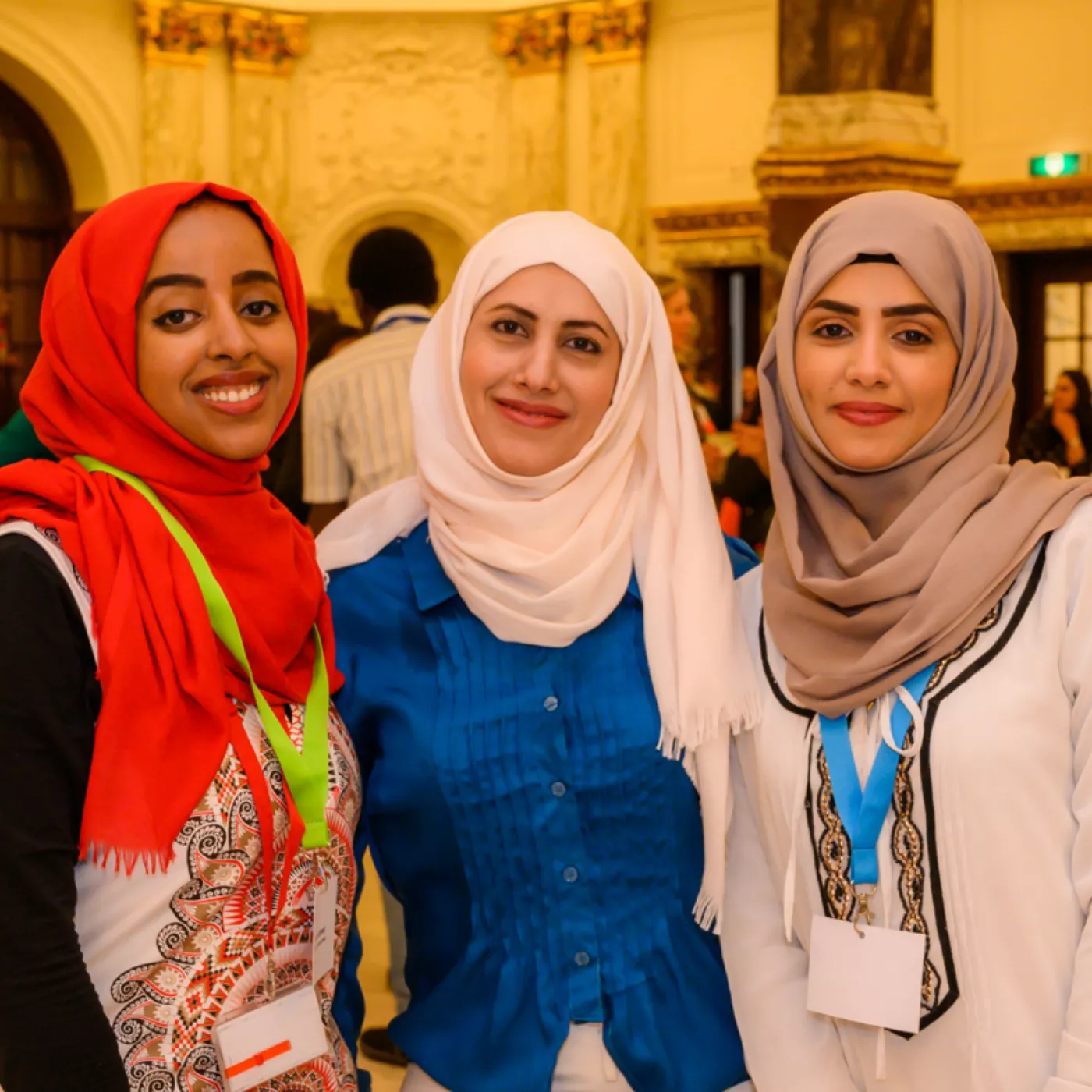
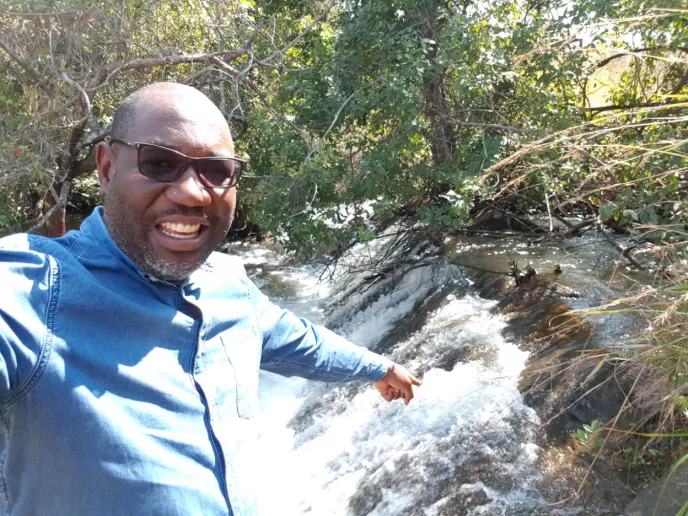
Week #14
Zambia: Building towards an urbanised and sustainable Zambia
In the Orange Knowledge Programme, we believe that everyone deserves a good quality education that will drive growth. One Tailor-Made Training (TMT) that focuses on working towards an inclusive and accessible education for students from marginalised backgrounds is the training project of The Hague Academy for Local Governance and Luminus Technical University College (LTUC) in Jordan. The main aim of this TMT project is to prevent school dropouts from TVET (Technical and Vocational Education and Training) students coming from marginalised backgrounds, such as migrants and refugees.
"If you want to go fast, go alone; but if you want to go far, go together." As this African proverb says, working together is a key to achieving more. Collaborations are key to strong achievements. One example of a strong network of partnerships is the lively collaboration between Sustainable Innovations Africa, the Solwezi Municipal Council and The Hague Academy for Local Governance. Wesley, our Impact Maker of this week, is part of the Sustainable Innovations Africa. Together with The Hague Academy for Local Governance, he helped to conduct and deliver a Tailor-Made Training (TMT) to strengthen the Solwezi Municipal Council.
Due to the rapid urbanisation of Solwezi in Zambia, local authorities are struggling to provide for their community’s needs. Providing clean water, land ownership, good sanitation and working sewerage systems are challenging. Before the start of the #OrangeKnowledge training, locals mainly looked at short-term solutions for solving problems. However, these short term solutions weren’t always the most sustainable methods. To shift from non-sustainable to sustainable solutions, a Training of Trainers programme was initiated to strengthen Solwezi. Wesley was one of the trainers in this initiative. He was involved in training participants to recognise issues arising out of urbanisation and devise ways to optimise their resources. During courses, influential participants – future trainers- gained knowledge about land ownership, water management and sanitation. They learned to identify water sources, manage them and inform communities about safe water use.
Wesley is enthusiastic about what he achieved with his partners. He strongly believes that the networks formed during the training sessions will help to further solve problems related to drinking water, sanitary facilities and land ownership processes. Now, participants work together as a team and will continue to train other trainers. Participants are able to develop action plans, and implement what they have learned to select sustainable solutions. Wesley’s success confirms: working together as a community is always a better way to handle problems. Together, the people Solwezi is encouraging growth through education!
| Before OKP | Current situation | Upcoming years |
|---|---|---|
|
Issues due to rapid urbanisation of Solwezi |
Exchange of knowledge and partnerships strengthen issues related to land ownership and water management |
New knowledge and partnerships on handling urbanisation issues continue to help improve quality of life in Solwezi |
Sustainable development goals: SDG4, SDG6, SDG11 and SDG17.
Discover more about this training
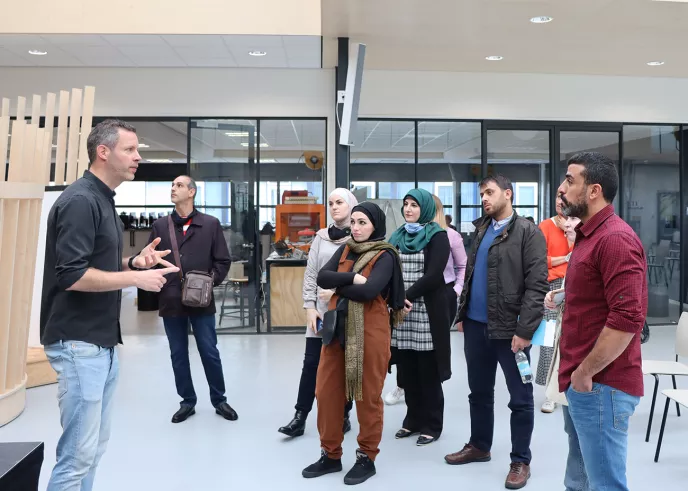
Week #13
Jordan: Strengthening teachers to be the gateways of opportunities for young migrants and refugees
In the Orange Knowledge Programme, we believe that everyone deserves a good quality education that will drive growth. One Tailor-Made Training (TMT) that focuses on working towards an inclusive and accessible education for students from marginalised backgrounds is the training project of The Hague Academy for Local Governance and Luminus Technical University College (LTUC) in Jordan. The main aim of this TMT project is to prevent school dropouts from TVET (Technical and Vocational Education and Training) students coming from marginalised backgrounds, such as migrants and refugees.
All students face barriers. However, the challenges young migrants and refugees face to stay motivated about education are even bigger. From difficulties in accessing funding for education, to inadequate learning materials and courses that don’t optimally help to access the labour market. Young migrants and refugees have a strong need for better access to quality education, as education will build opportunities for their future.
To help all students, change starts with teachers. As teachers all have their own networks and classes of students, they are the key to get positive change starting. That is why this TMT in Jordan is focusing on teaching staff in order to strengthen education. In the training sessions, teachers are helped to customise study programmes and provide education in a way that will help students more to transition smoothly into the labour market. By offering a skills-based training for their students, the LTUC teaching staff are continuously devising new ways to provide students with an assuring educational environment.
Teachers are now one step closer to achieving their goals of lowering the rates of school dropouts. This TMT is undoubtedly empowering not only for teachers, but also for students.
| Before OKP | Current situation | Upcoming years |
|---|---|---|
|
Vulnerable Jordanian youths face barriers in accessing both education and the labour market |
LTUC teaching staff implementing new ways of participatory, inclusive and trauma-sensitive education |
Students have access to quality education and can transition better into the labour market |
Sustainable development goals: SDG3, SDG4, SDG10 and SDG16.
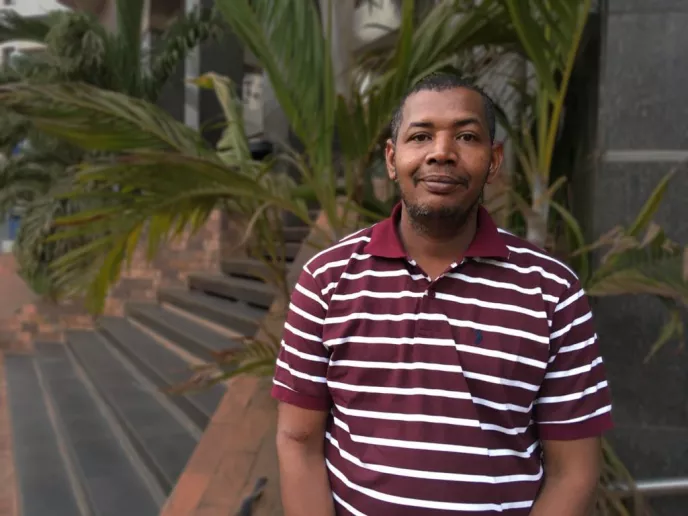
Week #12
Mali: NL alumni buidling strategic partnerships
Alumnus Mahamadou DICKO from Mali is currently a PhD candidate in Wageningen University & Research, where his research focuses on assisting agrological niches in Mali by building partnerships with local stakeholders to increase the rate of agrology in the country. Agrology is the branch of agriculture that studies soil in relation to crop production. In Mali, he works for local and international NGOs and is closely connected to communities of different backgrounds.
Other than agriculture and agrology, Mahamadou is passionate in studying climate change and human security. To him, being secured as a human being is more than just being unharmed: humans need food security, sufficient nutrition, be in good health and have freedom of rights too. Mahamadou noticed that in Mali, women and youths are not well-represented and are excluded from many opportunities, including in agriculture. After joining training sessions that are part of the Orange Knowledge Programme, Mahamadou is encouraged to work towards giving women and youth more responsibilities and opportunities in the agriculture sector to give them economic stability. He is continuously building partnerships with relevant stakeholders to provide training sessions, course materials and inspiration for women and youths to use.
Having an alumnus like Mahamadou, who is carrying out heart-warming efforts to make a change in their societies, shows the impact of the Orange Knowledge Programme. Education is truly the engine for growth!
Sustainable development goals: SDG2, SDG4, SDG5, SDG13 and SDG17.
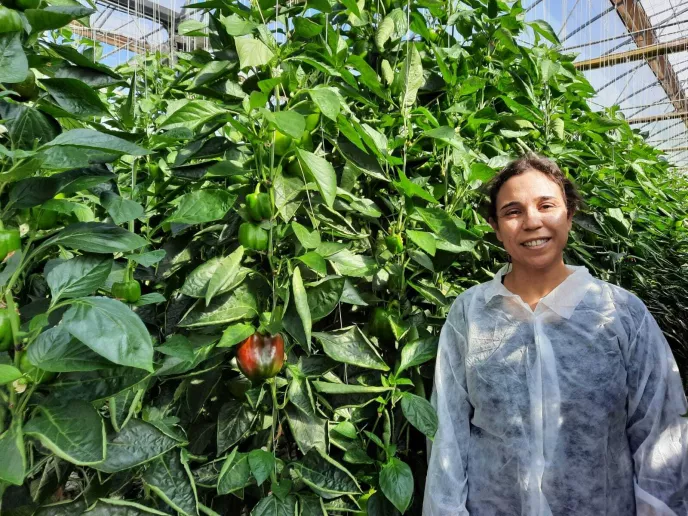
Week #11
Tunisia: Training the next generation of successful and sustainable entrepreneurs in Tunisian agriculture.
Education is the engine for growth. It is essential that we support future generations with good education. This week in our #OrangeKnowledgeImpactSeries, we zoom in on how education promotes agricultural growth in Tunisia. Talking about agriculture, means talking about climate. The project ‘New Ways of Growing the Future’ is a great collaboration between Delphy (Delphy International) and CFPA EL Alia. With The Salt Doctors, iCRA , AVFA (Agence de Vulgarisation et de Formation Agricoles) as training partners, the initiative promotes agricultural growth through focusing on educating students to become successful and sustainable agriculture entrepreneurs.
Meet Houria, one of the participants of the training sessions. As a senior trainer engineer, she is passionate about the Tunisian horticultural sector. What’s more, she is now also enthusiastic about how adapting to technical, economic and environmental challenges can create opportunities. Convinced by new opportunities, Houria made it her mission to transfer the knowledge she obtained through the sessions to future farmers through education.
Houria now is able to express her ideas and dreams for Tunisian open-field and greenhouse cultivation. On a daily basis, she is active in training farmers and revising educational programmes with new insights. After being inspired though training sessions, Houria now inspires and educates others though her own training sessions. This way, farmers and trainers are working together in growing towards a sustainable future.
Sustainable development goals: SDG2, SDG4, SDG8 and SDG13.
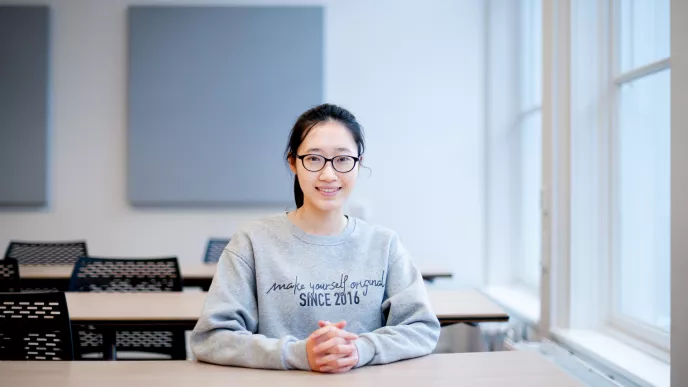
Week #10
Vietnam: working towards better water quality
In Vietnam, climate challenges greatly increase the need for both modern techniques and experts in the field of water management. But as much as the country urgently needs interest and expertise in water, enthusiasm on the subject stays limited. There has been a constant decline in students pursuing studies in the field of water.
The Orange Knowledge project Climate Proof Vietnam aims to attract a new generation of engineers with an updated curriculum and engaging practical activities. Through the close collaboration between Dutch and Vietnamese universities, the project aims to support current and future water engineers in Vietnam with adequate knowledge and skills to work towards improving water quality in Vietnam. Students are stimulated to take part in various workshops and is assisted to carry out fieldwork to enhance their practical skills. With adequate educational facilities and upgraded organisational development, students are well-equipped to transfer their knowledge towards real-life issues. Moreover, by updating the water education curricula, the project is also looking to promote water education to students. This project ensures that the current and future generations of water engineers are ready to enter the labour market and refine Vietnam’s water management system. Over time, these small steps will initiate big, significant changes.
Do Thi Thuy Dung (portrait above) is a participant of the Climate Proof Vietnam project and is currently studying 'Water Science Engineering' at IHE Delft Institute for Water Education. Despite poor water quality continuously being an issue in Vietnam, Dung expresses a positive attitude towards a better water treatment and quality systems. In the future, Dung would like to educate the younger generation and raise awareness about this issue of water quality. She believes that starting from one person to a joint effort, water quality in Vietnam can improve.
| Before OKP | Current situation | Upcoming years |
|---|---|---|
|
Insufficient emphasis on water treatment and management in higher education syllabus; inadequate modern technology |
Strengthening partnerships with Vietnamese universities to improve curricula and skills; increased inflow of students |
Better use of modern technology to improve water quality and management |
Sustainable development goals: SDG2, SDG4, SDG6 and SDG13.
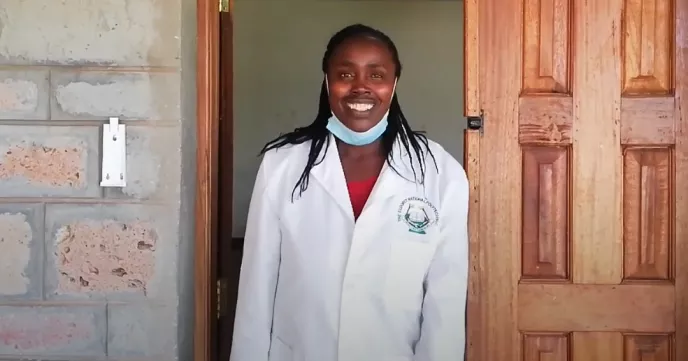
Week #9
East African Region: insitutional project on dairy
The more people involved, the more impact can be achieved. When Kenyan, Ugandan and Ethiopian education institutions all expressed similar needs for an update of their dairy education curriculum, we knew this would be a great opportunity for collaborations within the Orange Knowledge Programme. The 3 countries held activities in their own countries but also collaborated with one another to develop joint partnerships between the dairy industry players in each country.
An approximate amount of 80% of the population in East Africa depends on agriculture for their livelihood. Of course, dairy is also a part of this. However, dairy production often still relies on traditional techniques as not all knowledge is widely shared and accessible in the region. To respond to this capacity need, Project EARNED started as an initiative in the Orange Knowledge Programme. Since its start in 2019, the project has taken steps to improve institutional, organisational and individual capacity to offer blended and practical training in dairy production, processing and business in both the East African Region and the Netherlands.
The project assisted 12 institutions around the three countries in training local farmers, improving dairy curricula and strengthening partnerships between various stakeholder groups (Universities, TVET, private sector, NGOs, etc). Moreover, the digital learning environment in the 12 institutions were improved due to the development of ‘Delta Dairy Academy’, an online tool built to enable blended learning at a global level. Now, theoretical dairy education and trainings can be combined with practical learning by using digital tools. What’s more, knowledge can be shared between institutions and countries!
With updated curricula and brand-new tooling, institutions part of the EARNED project will keep on making a positive change in the upcoming years. The ultimate outcome: more ecologically sustainable food systems, reduction in malnutrition from increased dairy intake and enhanced agricultural growth.
Education is the engine for growth!
| Before OKP | Current situation | Upcoming years |
|---|---|---|
| Kenya, Uganda and Ethiopia experienced similar needs for updated dairy curriculum | Regional collaboration in the field of fairly, new online tools utilised in practical and blended learning | Increased agricultural productivity, income and dairy consumption |
Sustainable development goals: SDG2, SDG4, SDG15 and SDG17.